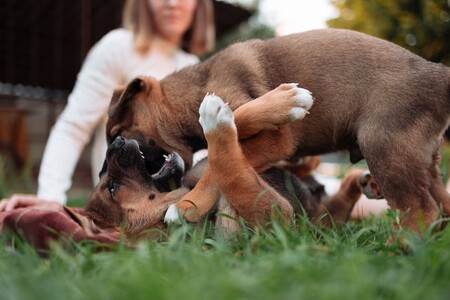The Essential Guide to Socializing Your Dog: Building Bonds and Confidence
Socialization plays a crucial role in shaping a dog’s behavior and temperament, setting the foundation for a well-adjusted and confident companion. Whether you’re welcoming a new puppy into your family or helping an adult dog adapt to new experiences, proper socialization is key to fostering positive interactions with people, animals, and environments
Ideally, socialization should begin during the critical developmental period, which is typically between 3 and 14 weeks of age for puppies. During this time, puppies are most receptive to new experiences and less likely to develop fear or anxiety towards novel stimuli. However, socialization efforts should continue throughout a dog’s life to maintain and reinforce positive behaviors.
Focus on creating positive associations with various people, animals, objects, and environments. Use treats, toys, and praise to reward calm and confident behavior during interactions. Ensure that encounters are enjoyable and stress-free for your dog, gradually exposing them to new situations at a pace they can handle.
Expose your dog to a diverse range of experiences to help them become well-rounded and adaptable. This includes interactions with people of different ages, genders, and appearances, as well as exposure to other animals, sounds, surfaces, and environments. Introduce your dog to various settings such as parks, streets, vehicles, and indoor spaces to help them feel comfortable in different surroundings.
Monitor your dog’s interactions closely, especially during initial introductions to unfamiliar people or animals. Ensure that interactions are safe and positive for all parties involved, intervening if necessary to prevent conflicts or negative experiences. Gradually increase the complexity of social situations as your dog becomes more confident and skilled at navigating social cues.
Socialization is an ongoing process that requires patience, consistency, and dedication. Set aside time each day for structured socialization exercises, incorporating new experiences gradually to prevent overwhelming your dog. Be mindful of your dog’s body language and comfort level, adjusting your approach as needed to support their emotional well-being.
Consider enrolling your dog in obedience classes or socialization sessions led by qualified trainers or behaviorists. These structured environments provide valuable opportunities for controlled socialization with other dogs and guidance from experienced professionals.
Proper socialization is essential for helping your dog develop into a confident, well-mannered, and emotionally resilient companion. By exposing them to a wide range of positive experiences and providing guidance and support along the way, you can help your dog build strong bonds with people and animals while navigating the world with confidence and ease. Remember, socialization is an ongoing journey that requires patience, consistency, and love, but the rewards of a well-socialized dog are immeasurable.



